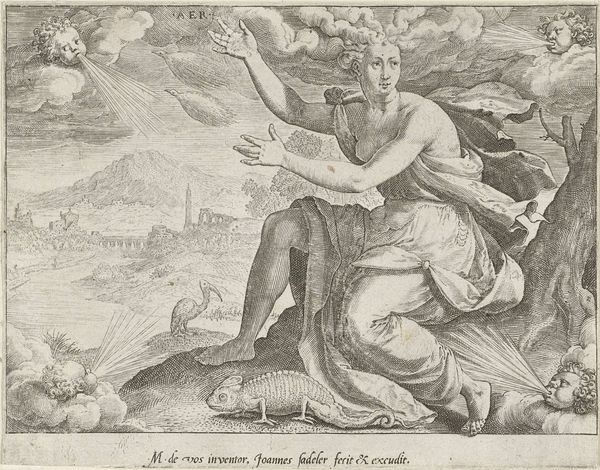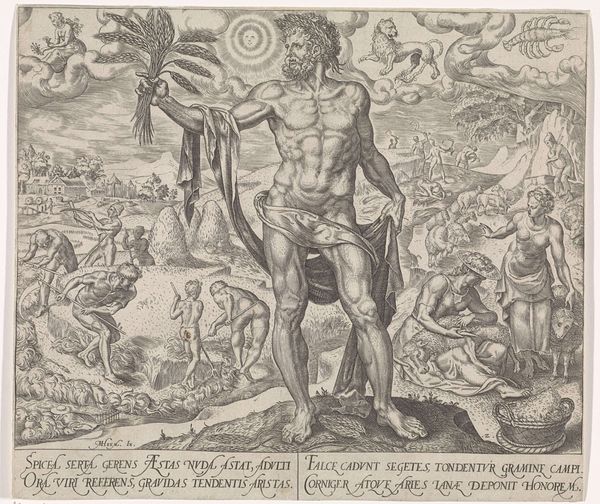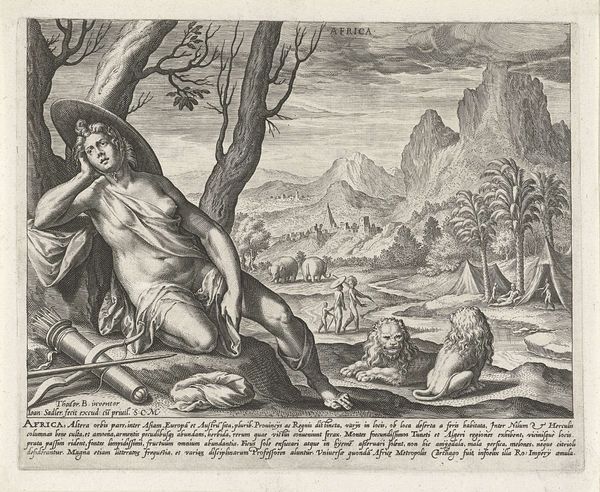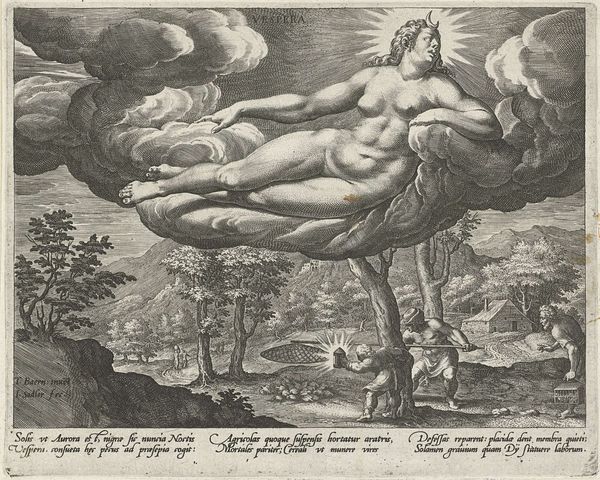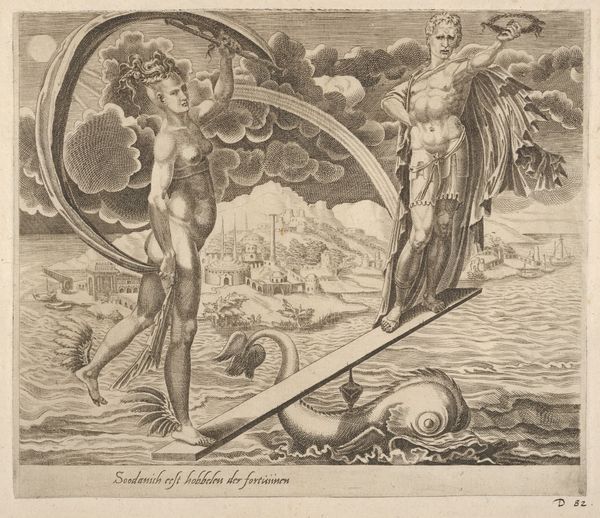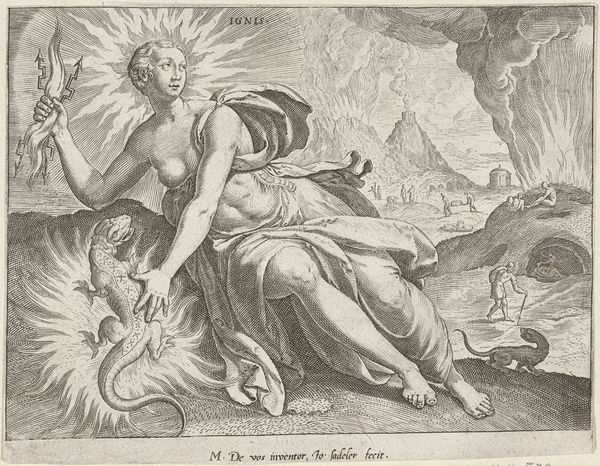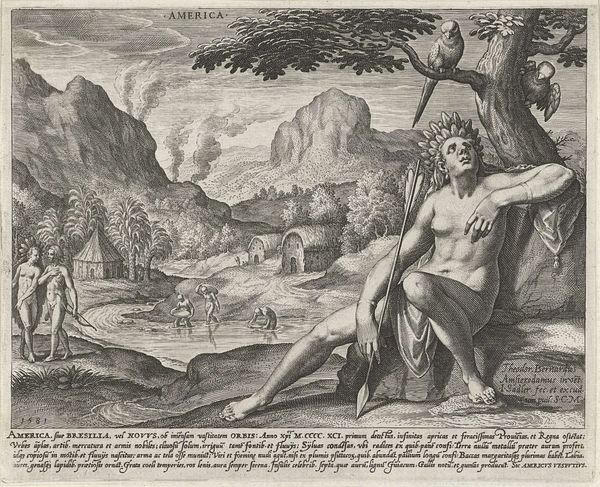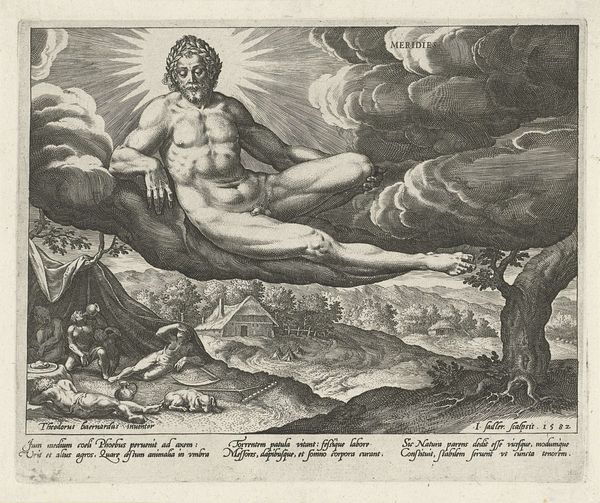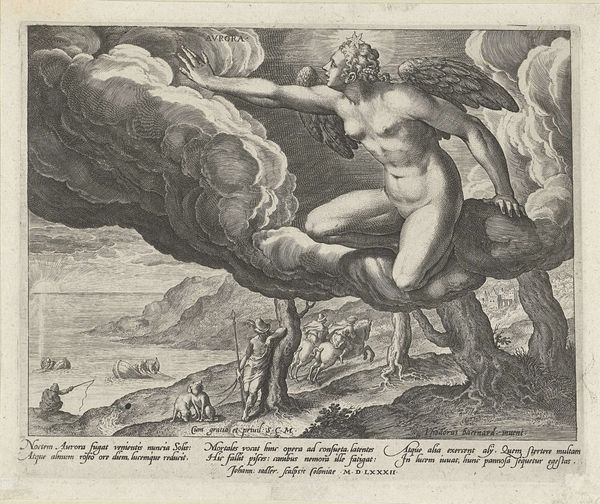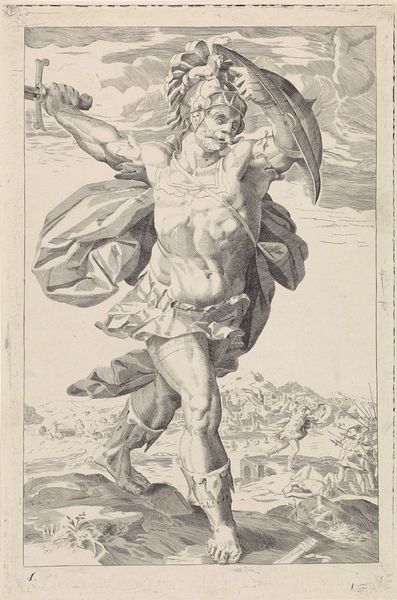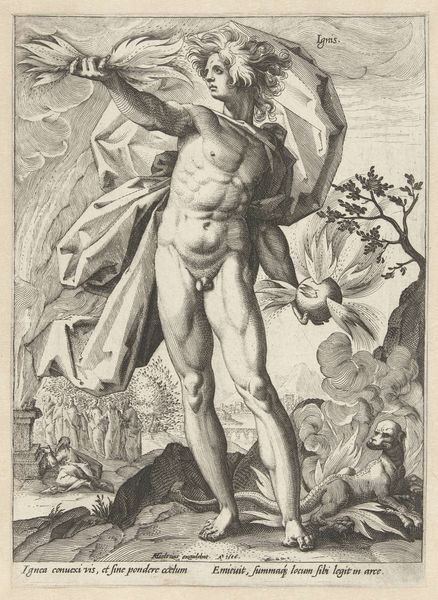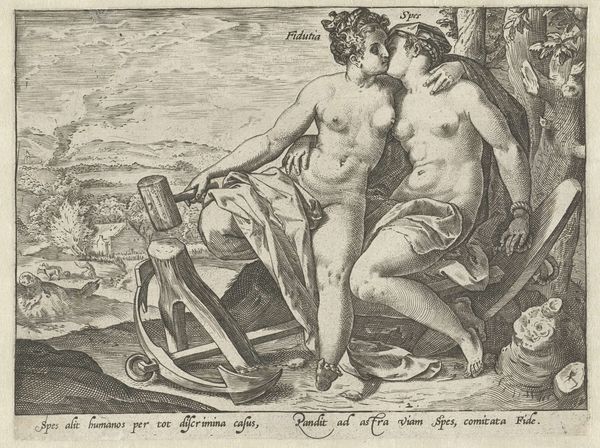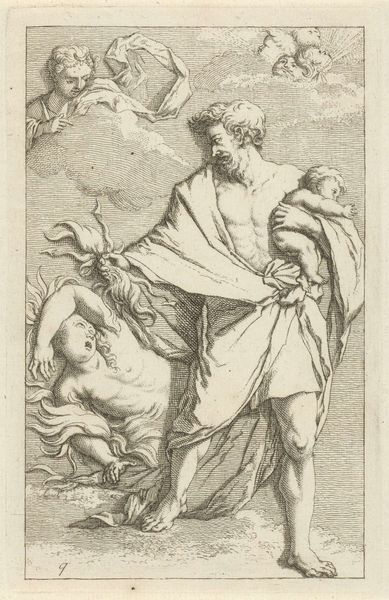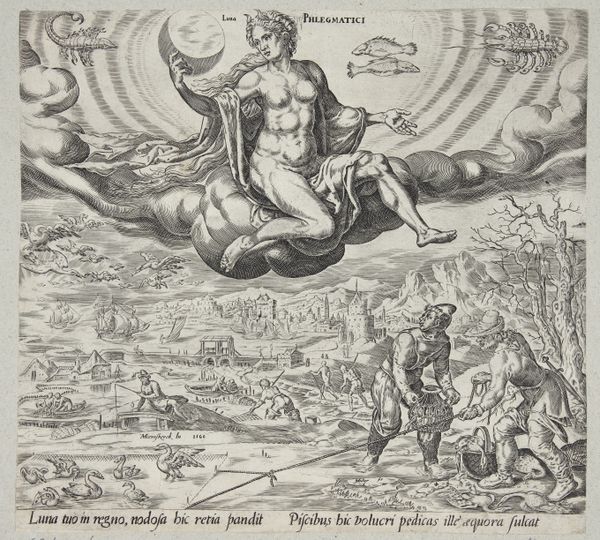
Dimensions: height 105 mm, width 136 mm
Copyright: Rijks Museum: Open Domain
This engraving of 'Water' was made by Johann Sadeler I in the late 16th century. At its heart, is the allegorical figure of Aqua, the embodiment of water, replete with reeds in her hair. She sits, almost a personification of the life-giving force, with water flowing from her urns to the sea. The presence of flowing water is more than a simple depiction of an element; it is a symbol of life, fertility, and purification. From ancient Mesopotamian art, where rivers were divine beings, to Greek mythology's Oceanus, water deities have been revered for their life-sustaining power. We see a similar reverence in Aqua, whose nurturing streams echo the cyclical nature of water itself. Consider the nymphs in Renaissance paintings, often depicted near springs and fountains. These figures, like Aqua, tie the life-giving properties of water to feminine ideals, and represent a deep, subconscious recognition of water's vital role. The ceaseless flow of water has surfaced, evolved, and been reinterpreted across history, engaging us on a profound, emotional level.
Comments
No comments
Be the first to comment and join the conversation on the ultimate creative platform.
